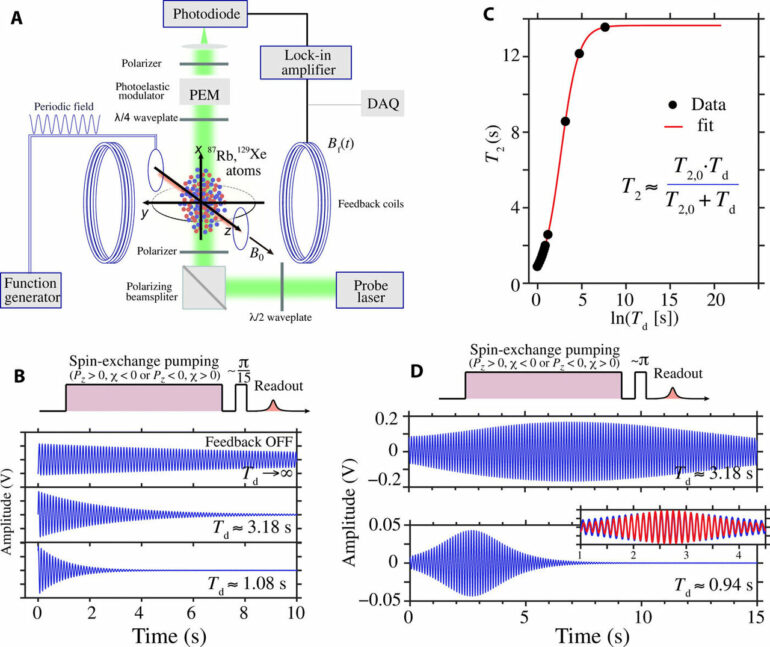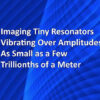Detection of weak signals is a crucial step in the verification of physics hypotheses and making breakthroughs in cutting-edge and fundamental physics research. However, if the signals are too weak to measure, they need enhancement. One attractive way to amplify the signals is quantum amplification. The state-of-the-art quantum amplification techniques still have some limitations because they rely on the inherent discrete state transitions of atoms and molecules and therefore lack tunability, usually enhancing only one signal within a narrow range of frequencies.
To solve this problem, the research team led by Prof. Peng Xinhua from University of Science and Technology of China (USTC) of the Chinese Academy of Sciences, collaborating with Prof. Dmitry Budker from the Helmholtz Institution in Mainz, extended quantum amplification to periodically driven spins. The result was published in Physical Review Letters.
Periodically driven systems, or Floquet systems, are described by time-dependent, periodic Hamiltonians. A Floquet system possesses energy levels with equal energy gaps, and the system’s state can jump between different energy levels via resonance transitions. The combination of quantum amplification and the Floquet system is promising in overcoming the limitations of conventional quantum amplification methods.
The researchers periodically drove 129Xe noble gas with an oscillating field. The Hamiltonians of 129Xe spins then became time-periodic, and the system obtained extra synthetic dimensions, which allows resonance transitions in a broader frequency range. With this 129Xe Floquet spin system, researchers demonstrated the amplification of multiple weak electromagnetic waves simultaneously, both in theory and experiment.
This work extends quantum amplification to Floquet systems and observes a new type of amplification phenomenon—Floquet spin amplification. It largely overcomes the limitations of conventional amplifiers, increases the operation bandwidth in femtotesla-level measurements, and allows amplifying more than one signal at different frequencies in the meantime. This Floquet amplifier enables a wide range of applications in precision measurements and in the study of fundamental physics.
More information:
Min Jiang et al, Floquet Spin Amplification, Physical Review Letters (2022). DOI: 10.1103/PhysRevLett.128.233201
Provided by
Chinese Academy of Sciences
Citation:
Researchers extend quantum amplification to Floquet systems (2022, June 23)



